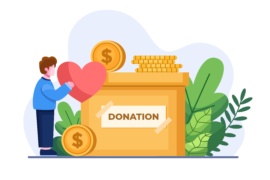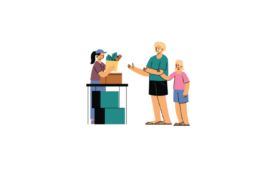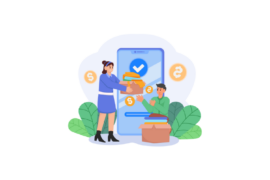Nonprofit organizations play a pivotal role in tackling societal issues, whether providing humanitarian aid and protecting the environment or treating illness and educating communities. These groups rely heavily on the goodwill and assistance of benefactors, volunteers, and allies to fulfill their missions. In an increasingly connected and digital world, managing these relationships proficiently is paramount to their success. This is where Nonprofit CRM Software enters the scene.
Today’s swift-moving, data-powered climate presents nonprofits with the test of not simply attracting supporters but also engaging with them meaningfully. Whether nurturing long-term donor bonds or coordinating volunteer initiatives, the intricacies of overseeing a nonprofit’s interactions with its stakeholders require a strategic approach. Customer Relationship Management, commonly called CRM, has emerged as a fundamental tool for achieving this.
Understanding Nonprofits and CRM
Nonprofit groups, also referred to as non-governmental organizations (NGOs) or charities, dedicate themselves to advancing societal welfare. These entities are motivated by a mission to tackle environmental, cultural or societal issues. Unlike profit-focused companies, their primary aim is not generating income for shareholders but making a positive global impact.
Nonprofits rely on various funding sources, including personal donations, grants, corporate collaborations, and fundraising events. Due to their mission-driven character, they regularly face unique difficulties compared to profit-centric businesses, like restricted resources, strict budgetary constraints, and the necessity to maintain transparency and accountability to their benefactors and the general public.
The Concept of Customer Relationship Management is a strategic direction and a collection of practices that organizations, including nonprofits, employ to establish and preserve strong connections with their associates, which can involve benefactors, volunteers, beneficiaries, and partners. CRM isn’t confined to technology but extends to processes, policies, and staff training.
Fundamentally, CRM involves collecting, organizing, and analyzing data regarding an organization’s interactions with its stakeholders to improve relationships and achieve preferable outcomes. This data can include contact information, donation history, volunteer preferences, and communication records.
Distinct Hurdles Nonprofits Face in Managing Connections
Nonprofit organizations encounter unique difficulties when it comes to relationship administration. These challenges include:
Diverse Associate Groups: Nonprofits engage with a wide range of associates, each with varying needs and expectations. Benefactors, volunteers, beneficiaries, and partners all necessitate personalized approaches to involvement.
Constrained Resources: Many nonprofits operate with tight budgets, making it crucial to maximize the impact of every engagement. Efficient resource allocation is essential.
Transparency and Accountability: Nonprofits are regularly held to high standards of transparency, both by their benefactors and by regulatory bodies. Illustrating how donations are used and the impact achieved is a key part of their operations.
Long-term Connections: Establishing and maintaining long-term relationships with supporters is critical for nonprofit sustainability. Effective CRM helps nurture these relationships over time.
What is Nonprofit CRM Software?
Nonprofit relationship management platforms, also known as constituent partnership software, are specialized digital solutions intended to fulfill the exclusive prerequisites of charitable groups. It serves as a centralized system for administering and arranging interactions with benefactors, volunteers, people served, and other stakeholders.
The Chief Role in Handling Benefactor Links
The prime aim of nonprofit relationship management platforms is to streamline and optimize the administration of benefactor relationships. Benefactor administration is a core element of a charity’s tasks, and this software provides instruments to track and nurture these connections successfully.
These platforms assist nonprofit organizations retain comprehensive benefactor profiles, chronicling important data like contact information, giving histories, communication preferences, and participation histories. This allows groups to individualize their interactions with benefactors, building more personalized and meaningful encounters.
Additionally, nonprofit relationship management platforms regularly feature capabilities for tracking and acknowledging donations, automating recurring giving processes, and dividing benefactors based on diverse criteria. These functionalities not only improve benefactor retention but also enhance fundraising initiatives by allowing more targeted campaigns and appeals.
Differences from General Relationship Management Solutions
While the basic principles of relationship management apply to both nonprofit and for-profit organizations, nonprofit relationship management platforms are customized to meet the particular needs and challenges of the nonprofit sector. Here are some key distinctions between nonprofit relationship management platforms and general relationship management solutions:
Fundraising Focus: Nonprofit relationship management platforms place a strong emphasis on fundraising and benefactor administration, offering specialized tools for tracking donations, managing campaigns, and examining fundraising performance. General relationship management solutions regularly lack these specialized features.
Volunteer and People Served Management: Nonprofits often work with volunteers and serve people in addition to benefactors. Nonprofit relationship management platforms include capabilities for volunteer administration and people served tracking, confirming that all stakeholder relationships are administered successfully.
Customization for Nonprofit Workflows: Nonprofit relationship management platforms are usually customizable to accommodate the specific workflows and processes common in nonprofit organizations. This flexibility allows nonprofits to adapt the software to their unique needs.
Reporting for Impact Measurement: Nonprofit relationship management platforms regularly offer robust reporting and analytics tools tailored to nonprofit metrics. This allows organizations to measure their social impact and demonstrate transparency to benefactors.
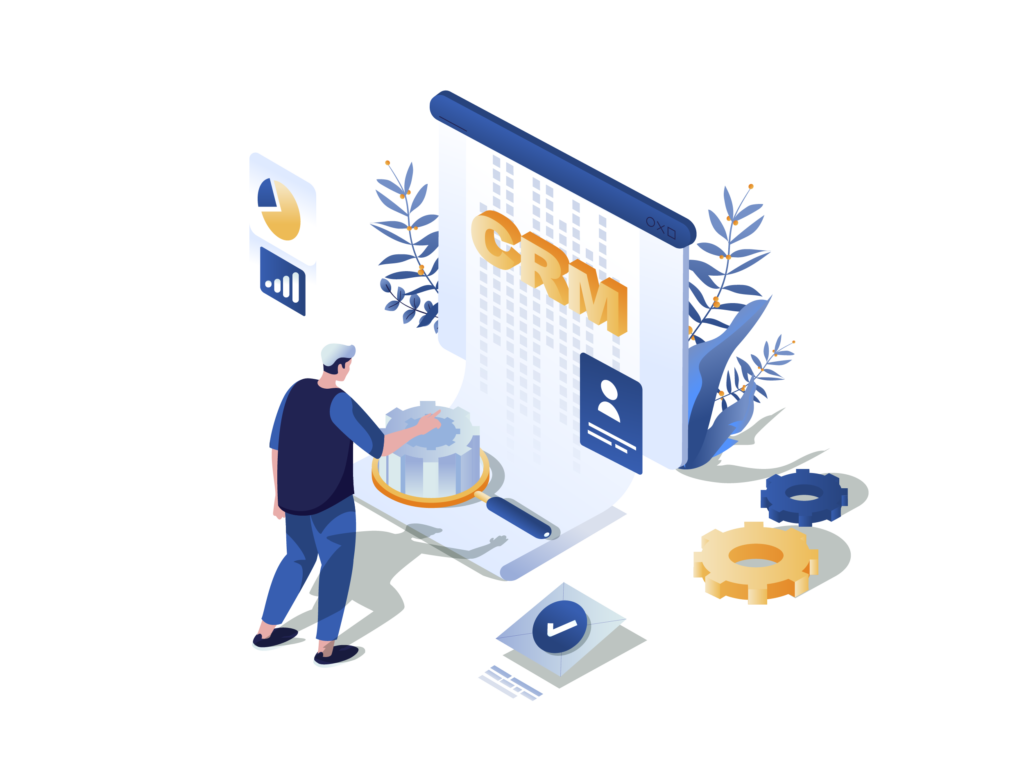
Key Features of Nonprofit CRM Software
Nonprofit CRM software is a versatile platform designed to meet the varied needs of nonprofit organizations. Here are some core components nonprofit CRM systems commonly feature:
Donor Profiles: Comprehensive donor profiles containing contact info, giving histories, and outreach preferences let nonprofits truly know and engage backers more intelligently.
Crowdfunding Tools: These tools help with diverse fundraising efforts like online contributions, member management, event registration, and person-to-person donation drives.
Communication Integration: Nonprofit CRM software offers email marketing, social networks, and mass notification to involve donors, volunteers, and beneficiaries.
Segmentation and Targeted Outreach: Organizations can group supporters on criteria like donations, interests, and attributes, allowing personalized tailored communication.
Volunteer Tracking: Volunteer scheduling and monitoring capabilities help nonprofits arrange volunteer work efficiently.
Beneficiary Documentation: Nonprofits can track and watch over beneficiary data, ensuring improved service delivery and impact valuation.
Reporting and Analytics: Robust reports deliver insights into fundraising success, donor engagement, and general influence, assisting data-led decision making.
Benefits for Nonprofit Organizations
Each feature offers numerous advantages to nonprofit organizations:
Enhanced Donor Retention: Through complete donor profiles, CRM software helps build and nurture long-term relationships, bringing about higher donor retention rates.
Increased Fundraising Productivity: Fundraising tools streamline the giving process, making it simpler for backers to contribute and organizations to handle campaigns.
Customized Engagement: With segmentation and targeting, nonprofits can tailor communication to unique donor preferences, resulting in more meaningful interactions.
Information-Guided Decision Making: Reporting and analytics deliver important understandings, allowing nonprofits to assess impact, refine strategies, and demonstrate accountability to donors.
Improved Volunteer Coordination: Volunteer management features simplify recruiting, scheduling, and coordinating volunteers, boosting operational productivity.
Better Beneficiary Support: Beneficiary tracking ensures nonprofits can deliver services efficiently, monitor outcomes, and optimize programs.
Nonprofit CRM software serves as a powerful comprehensive solution that empowers nonprofit organizations to fulfill missions more productively and effectively. It allows building stronger bonds, streamlining operations, and driving positive change in communities.
Benefits of Nonprofit CRM Software
Nonprofit CRM packages provide a swathe of advantages that can revolutionize how entities operate and accomplish their goals. Below, we delve deeper into these perks, emphasizing the latent to reinforce donor involvement, better fundraising attempts, and heightened productivity.
Enhanced Donor Participation:
CRM software allows charities to establish personalized supporter profiles, containing giving histories, contact preferences, and dealings with the company. This wealth of data permits highly targeted and meaningful participation.
Tailored communication, designed for each donor’s interests and background, leads to elevated donor participation and a stronger link to the organization’s objective.
Improved Fundraising Efforts:
Nonprofit CRM software simplifies the donation process, creating convenience for contributors to donate. It offers online giving alternatives, membership management, event registration, and the ability to run peer-to-peer fundraising campaigns.
By automating fundraising tasks, entities can save time and assets, allowing them to focus on nurturing relationships and crafting compelling campaigns that resonate with their backers.
Heightened Productivity:
CRM software mechanizes manual processes, such as data entry, communication scheduling, and campaign administration. This automation lessens the administrative burden on staff, freeing up their time for more strategic jobs.
Effectiveness increases extend to volunteer management and beneficiary services, as CRM software offers tools for coordinating volunteers and tracking the impact of programs.
Data-Driven Decision Making:
CRM software provides robust reporting and analytics tools that allow nonprofits to measure their impact, track fundraising performance, and assess participation levels. These insights enable data-driven decision making, helping organizations refine strategies and allocate resources more productively.
Transparency and Responsibility:
Nonprofit CRM software supports transparent reporting to donors and regulatory bodies. It allows organizations to demonstrate how funds are used and the outcomes achieved, enhancing accountability and trust.
Long-Term Relationship Building:
CRM software aids in building and maintaining long-term relationships with backers. By capturing and storing valuable donor information, nonprofits can tailor involvement strategies to nurture these relationships over time.
Challenges and Considerations
While adopting nonprofit CRM software offers clear perks, implementing such systems poses hurdles for organizations with restricted budgets:
Financial constraints often make large investments challenging for nonprofits running on shoestring funds. Surmounting budget barriers may necessitate savvy economic planning and securing dedicated CRM funding.
Safeguarding delicate donor information is imperative as nonprofits handle privacy-sensitive data. This necessitates additional cybersecurity and staff training costs to satisfy regulations.
Successful CRM deployment hinges on personnel proficiency with new technologies. Thorough training must acclimate employees to adjusted workflows, requiring deft change management.
Selecting optimally-tailored CRM involves complicated evaluations. Features, malleability, usability, and longevity must be weighed against an organization’s singular needs.
Integrating CRM seamlessly with existing email and accounting solutions is pivotal for productivity. Manual redundancies compromise efficiency when systems lack interoperability.
Some resistance adjusting routines is understandable as unfamiliar technologies cause uncertainty. However, outlining advantages overcomes fears through transparent communication and acculturation.
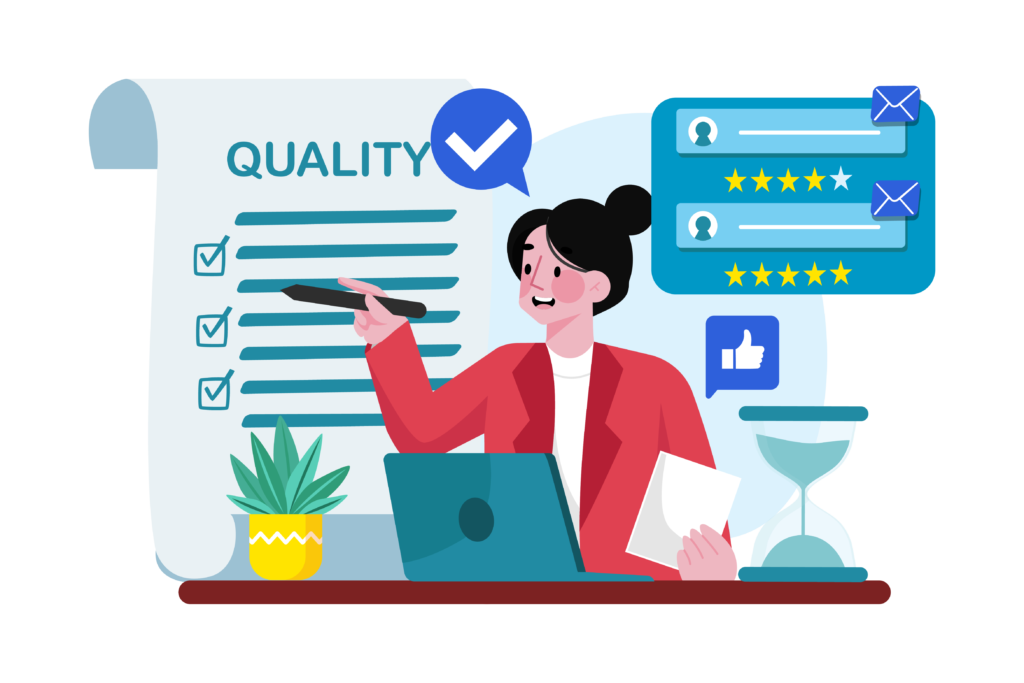
How to Implement Nonprofit CRM Software
Implementing nonprofit CRM necessitates foresight and strategic planning. A judicious approach paves the path for fruitful results. Here are the steps:
Commence by comprehensively surveying organizational priorities and aspirations. Pinpoint where CRM optimizes donor relations, volunteer coordination, or impact quantification.
Research and contrast divergent CRM configurations tailored for nonprofits. Weigh elements such as traits, scalability, user-friendliness, and expenditure. Opt for a scheme congruent with prerequisites.
Mold the CRM to match idiosyncratic workflows. Customize recording data and administering processes conveniently. This may involve configuring areas, sequences, and reports.
If preexisting databases or systems currently oversee donor facts, migrate this intelligence to the new CRM. Methodically blueprint this transfer to ensure integrity and totality.
Furnish exhaustive preparation to staff employing the CRM. Ensure comprehension of productive usage and feature exploitation.
Before full implementation, experiment with a reduced group or division. This identifies any dilemmas or areas for amelioration preceding organization-wide dissemination.
Progressively unveil the CRM across the organization. Integrate with other preexisting systems and instruments for fluid data transit.
Constantly procure user feedback, monitor execution, and initiate necessary alterations to augment effectiveness. An ongoing undertaking.
Guarantee compliance with data security and privacy regulations, implementing robust defenses to shelter donor and beneficiary intelligence.
Document processes and best practices related to internal CRM usage. This aids newcomers and ensures uniformity in intelligence administration.
The Future of Nonprofit CRM Software
The sphere of not-for-profit CRM computer software package is continually altering to meet the altering wishes of charitable associations. Listed here are some arising tendencies and innovations inside the field:
Synthetic Intelligence (AI) and Predictive Analytics: CRM software is increasingly incorporating AI and predictive analytics to supply insights into benefactor conduct and preferences. This permits corporations to expect benefactor giving patterns and individualize their outreach accordingly. Benefactors’ ongoing support can now be envisioned with higher accuracy.
Versatile Get right of entry to: As cellular machine usage continues to upward push, CRM software package is becoming greater cell-pleasant. Cellular apps and responsive designs permit charities to access benefactor records and control relationships on the pass. Campaigns can carefully achieve their goal market regardless of in which they may be.
Blockchain for Transparency: Blockchain era is being explored to improve transparency in charitable operations. Benefactors can track their contributions from start to end, ensuring that their budget are used as intended for max affect. This builds have confidence for destiny giving.
Integration with Social Media: CRM software is integrating with social media platforms to assist organizations engage with benefactors and volunteers in which they may be maximum active. This trend facilitates seamless communique and outreach. Networks are leveraged to multiply impact.
Machine Learning for Personalization: Machine getting to know algorithms are being used to create extremely personalized benefactor experiences. These algorithms can analyze huge datasets to offer tailored content and recommendations to person benefactors. Each donor feels recognized and vital to the cause.
Importance of Staying Up-to-Date with CRM Technology
Staying present with CRM era is critical for charitable organizations for numerous motives:
Aggressive Advantage: Nonprofits that embrace the latest CRM innovations achieve a aggressive fringe in fundraising, benefactor engagement, and operational efficiency. They keep related and related.
Enhanced Potency: New CRM capabilities regularly make stronger potency and automation, enabling charities to save you time and resources at the same time as achieving their dreams. Assets are used wisely.
Modifying to Benefactor Expectations: As benefactors’ expectations evolve, staying up so far with era ensures that charities can meet these expectancies, presenting a first-rate benefactor experience. Trust and guide are maintained.
Boosted Impact Evaluation: State-of-the-art CRM era presents higher equipment for tracking and measuring effect, which is very important for demonstrating the efficacy of charitable courses. Outcomes can be clearly demonstrated.
Conclusion
It’s clear that customer relationship management software provides more than just tools; it offers a strategic asset for nonprofits. This technology empowers organizations to form deeper bonds with supporters, streamline procedures, and most significantly, fulfill missions more successfully. Therefore, we advise nonprofit groups to ponder adopting CRM software. Embrace this innovation to unlock your organization’s full abilities, build lasting relationships, and drive positive alteration worldwide. When navigating the intricate landscape of the nonprofit sector, CRM software can function as the guiding light that illuminates the path toward achievement and impact.
Are you prepared to take your nonprofit organization to new elevations, boost fundraising initiatives, and cultivate stronger donor bonds? Then it’s time to explore the realm of Werbylo, the free, cloud-based charity and fundraising software designed exclusively for nonprofits.
Register for Werbylo presently, and experience the countless advantages our free, easy-to-use software presents to nonprofits similar to yours. Take gain of our characteristics for donor administration, fundraising instruments, communication, and reporting, all tailored to meet the singular needs of your organization. Discover how you can improve donor participation, streamline your fundraising, and maximize your productivity, all without cost to you.
Make the most of this opportunity to embrace the future of nonprofit CRM software with Werbylo. Initiate your journey toward greater impact, transparency, and success nowadays. Join our growing community of nonprofits that are generating a difference, one interaction at a time.
Don’t wait – take action presently, and see how Werbylo can assist you achieve your mission more successfully, one step nearer to a brighter future for your organization and the causes you serve. Register nowadays and experience the power of Werbylo.


